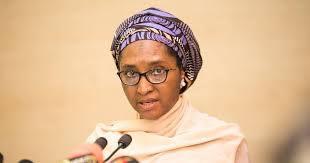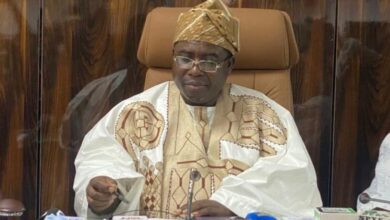Nigeria disagrees with ‘surprise’ Moody’s downgrade

Nigeria’s finance minister, Zainab Ahmed, said on Thursday that she disagreed with what she called a “surprise” downgrade of the country’s credit rating by Moody’s. She insisted that the government was already addressing the agency’s concerns.
Last week, Moody’s downgraded Nigeria to Caa1 from B3, saying the government’s fiscal and debt position was expected to keep deteriorating, an announcement that sent Nigeria’s dollar-bond and currency forwards tumbling.
Moody’s downgrade a surprise
- Reacting, Ahmed said, “Moody’s downgrade came as a surprise to us because we had presented all the work that we have been doing to stabilize the economy,” the minister, Zainab Ahmed, told reporters in Abuja.
- “But these are external rating agencies that don’t have the full understanding of what is happening in our domestic environment.”
The minister said she expected S&P’s rating, due on Friday, would be more positive.
- “S&P’s assessment is not the same as Moody’s. They have come out with a much better assessment,” she said.
The big issue
Nigeria has faced oil production shortages due to crude oil theft in recent years, though production has started to recover.
It has also suffered chronic dollar shortages coupled with high debt service which has eaten into government revenues.
Moody’s cited these factors as reasons for its downgrade.
For the record
- Moody’s had said Nigeria faces wide-ranging fiscal pressure while the capacity to respond remains constrained by the government’s long-standing institutional weaknesses and social challenges.
- Following the downgrade of Nigeria’s sovereign rating, the service downgraded the long-term deposit ratings of Nigerian banks to Caa1 from B3, but the change in outlook to stable.
- The downgrade affects the long-term deposit ratings, issuer ratings as well as the senior unsecured debt ratings (where applicable), of all the Moody’s rated banks in Nigeria: Access Bank Plc, Zenith Bank Plc, First Bank of Nigeria Limited, United Bank for Africa Plc, Guaranty Trust Bank Limited, Union Bank of Nigeria plc, Fidelity Bank plc, FCMB (First City Monument Bank) Limited and Sterling Bank Plc.
Nigeria’s Debt Position Triggers Moody’s Downgrade
Moody’s has downgraded Nigeria’s long-term foreign currency, local-currency issuer ratings, and also foreign currency senior unsecured debt ratings to Caa1 from B3 and changed the outlook to stable. The new rating concludes the review for the downgrade initiated on 21 October 2022. The fiscal and debt position of the country triggered the downgrade, the country’s debt rose to N44.06trn as of September 2022 and is expected to rise to N77trn after the securitization of the CBN’s ways and means. The rating agency expects the debt position to further deteriorate with the large 2023 budget deficit and lack of access to external funding sources apart from depressed oil production and capital outflows. Currently, the default risk is low with the assumption there will be no sudden/ unexpected event such as a shift in policy direction that would raise the default risk. Analysts believe this makes the country unable to borrow in the international market as foreign investors will prefer to stay away or demand extremely high yields to mitigate risk. This suggests Nigeria can only raise funds through domestic borrowing, suggesting huge bond issuance in 2023.




